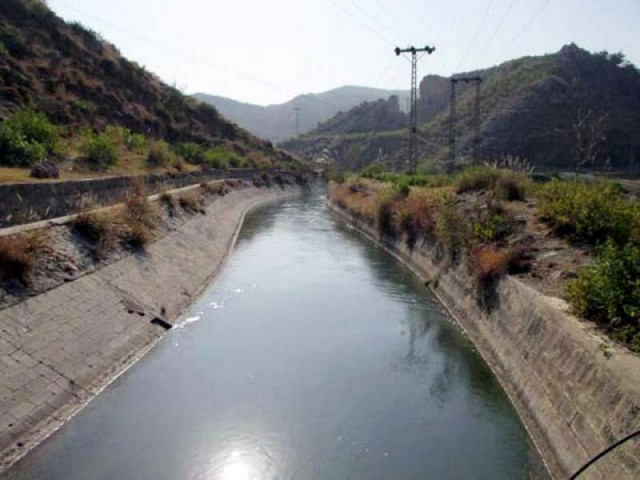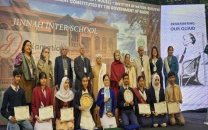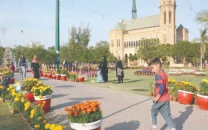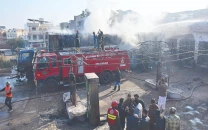Water conservation in lower regions of Sindh stressed
Seminar discusses need to promote technologies related to agriculture and efficient water usage for farming

The agriculture and water experts, as well as progressive farmers and social reformers, have stressed on the need of initiatives to conserve water in the lower regions of Sindh.
They also stressed the importance of promoting urban and vertical agriculture and encouraged the utilisation of drip irrigation to cultivate 50 per cent of the uncultivated agricultural land in the province.
These discussions took place during a consultation seminar titled “Food-Water Nexus: Connecting the Dots,” hosted by Sindh Agriculture University (SAU) in collaboration with the Research and Development Foundation (RDF) and Welthungerhilfe (WHH) on Thursday.
Also read: Sindh modernises water channels
Speaking at the event, SAU Vice-Chancellor Dr Fateh Marri, highlighted the lack of significant agricultural production development over the past three decades.
He emphasised the need to promote technologies related to urban agriculture and more efficient water usage, especially in the face of a growing population and potential water shortages.
Syed Nadeem Shah, a progressive farmer, pointed out the global practice of vertical planting and food preservation. He cited examples from China where individuals grow vegetables for personal use in their homes. Shah expressed concern about the conversion of green lands into urban areas.
Agriculture engineering department dean Dr Altaf Siyal, informed that in Sindh, it takes 1300 litres of water to produce one kilogram of wheat and 2500 litres for paddy.
He noted that farmers have been hesitant to adopt drip irrigation systems, and there’s a concern about the contamination of river Indus due to the discharge of polluted drainage water.
Sarwan Baloch, Programme Manager at WHH, noted that rural areas are the primary producers of food items, most of which are consumed in urban areas.
Published in The Express Tribune, October 20th, 2023.


















COMMENTS
Comments are moderated and generally will be posted if they are on-topic and not abusive.
For more information, please see our Comments FAQ